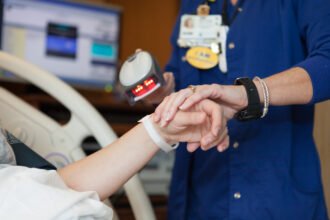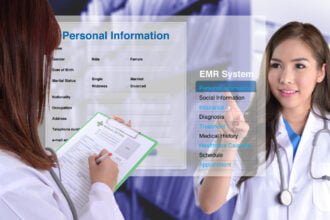With thousands of smart phone apps related to health, few can doubt a continued growth in this market. After living with months of uncertainty about how the Food and Drug Administration might regulate these apps, a new announcement has provided a growth hormone for this sector (http://www.fda.gov/NewsEvents/Newsroom/PressAnnouncements/ucm263340.htm) . The FDA defines these apps as “a variety of functions, ranging from monitoring calorie intake, helping people maintain a healthy weight, and allowing doctors to view a patient’s radiology images on their mobile communications device.” The only restrictions are on apps which might be an accessory to a regulated device or transform a smart phone into a regulated device, such as, enabling real time monitoring.
So what is the current state of mobile apps and where are they growing? Some broad categories define areas of growth. Medical reference and decision support apps are a strong sector for physicians with Epocrates taking the lead with a comprehensive drug and medication lookup (http://www.epocrates.com/products/android/) and others following, such as, the popular UpToDate reference (http://www.uptodate.com/home/about/mobile-access.html). Others specialize in imaging, such as VisualDx and iRadiology (http://geekdoctor.blogspot.com/2011/04/mobile-applications-for-medical.html).
Continuing Medical Education has moved beyond simple podcasts to a broad variety of topics and mobile formats. MedPageDaily is one example which includes medical news and the ability to earn CME credits. Smaller companies are getting into the mix, such as, ReachMD, with a full feature offering of content, exams and certificate management (http://www.reachmd.com/iphone.aspx).
Clinical apps for physicians include full featured electronic medical records, such as, Nimble for the iPad from ClearPractice (http://www.clearpractice.com/solutions/nimble). It includes practice management and eprescribing modules. Neuromind provides a long list of reference scales relevant to the practicing neurologist. There is also a Safe Surgery Checklist app which follows the checklist methodology key to patient safety stepping through sign in, time out, and sign out.
Patient facing apps are equally popular and have a broader reach. Informational apps provide an interactive platform that can be used in a clinical setting for patient education. A prime example is Blausen Medical’s Human Atlas. With a broad offering over 300 of 3-D videos which are easily rotate, this app suite is more effective in the tablet format so that the display of images are larger and easier to interact with (http://blausen.com/products). Monitoring apps are popular in diabetes. One example is OnTrack Diabetes which allows for easy entry of medications, glucose levels, reminders and graphs (http://www.appbrain.com/app/ontrack-diabetes/com.gexperts.ontrack). Monitoring blood pressure is getting easier with apps like that from Withings which includes a blood pressure cuff which attaches to the iPhone (http://www.withings.com/). Personal Health Records from some major vendors are now going mobile. Epic Systems, for instance, offers its MyChart tethered PHR for the iPhone. Cancer apps are coming onto the scene as well. Cancer.Net, a content/news website which has been around for a years, provides an app with information about types of cancer, medications, videos and the ability to ask questions (http://www.cancer.net/patient/Publications+and+Resources/Support+and+Resource+Links/General+Cancer+Organizations+and+Resources/Mobile+Applications).
Probably the strongest sector for health apps is wellness, diet and exercise. The best know is FitBit which is a device which records activity and sleep real time through a Bluetooth device which connects to the smartphone (http://www.fitbit.com/). Even mainline companies are going mobile; Weight Watchers now has a mobile app to support their weight loss program including functions to track, cook and calculate (http://www.weightwatchers.com/templates/Marketing/Marketing_Utool_1col.aspx?pageid=1118811). There are apps even for stress management; one is by the 360-5 program of Cleveland Clinic which provides eight different meditation techniques (http://www.360-5.com/Features/Pages/StressMeditationsiPhoneApp.aspx).
There is little doubt that the number and variety of health and medical apps will bloom on all platforms. And the existing apps will add features and depth as many have only limited features and still need work on usability on the small interface screen. Tablets provide a larger format which many app developers have only begun to tap. Adoption of the iPad in healthcare is well documented although hospital IT departments have difficulty keeping up with the demand and learning how to secure them. Whether other tablets will provide competition for the iPad in healthcare is unclear but Android phones do have significant adoption. The future beyond the growth in depth and breath of mobile apps is their integration into the care process. How long before physicians will recommend apps for the diabetic patients and ask them to bring in their phone or tablet to show their personal monitoring at their appointment. Even better will be apps which allow for disease and treatment monitoring and then allow the patient to upload data to their provider’s EMR from home or at the clinic. Soon physicians and nurses will carry tablets and routine explain surgery and procedures at the bedside with an interactive 3-D app. With the introduction of 3-D video to mobile devices, will there be 3-D images of the heart for the cardiac surgeon to rotate and demonstrate how a valve will be replaced? As with any fast growing market place, there may be a consolidation of apps and perhaps a merging of apps into suites around specific disease or conditions. Medical students are already using mobile devices routinely with some medical schools providing them. This next generation of physicians, having grown up with mobile devices, will find even more creative approaches to integrating mobile into their practice, collaboration, patient interaction and lifelong education.







